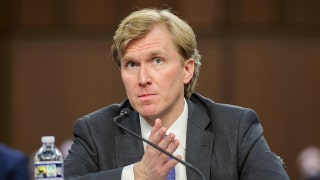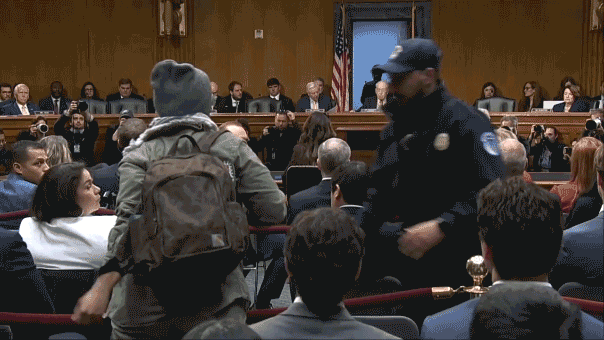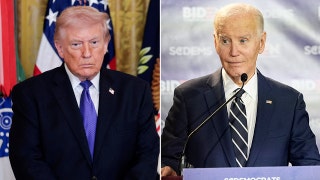Has Putin set his sights on NATO member states?
National security correspondent Jennifer Griffin has the latest from the Pentagon on 'Special Report.'
Russian President Vladimir Putin's incursion into Ukraine is the latest instance of destabilizing or oppressive behavior at home and abroad by the authoritarian strongman -- who has managed to shrug off pushback and denunciations from foes in his more than 20 years in power.
Putin announced Monday that he was recognizing the independence of two regions in Eastern Ukraine, a move followed up by troop deployments that the White House declared to be the beginning of the anticipated invasion of the country by Russia.
The move led to sanctions from the U.S. and its allies in Europe, as well as outrage and fears of a war of the kind Europe has not seen on its soil since the 1940s. British Defense Secretary Ben Wallace described Putin as having "gone full tonto" on Wednesday.
President Biden was similarly outraged: "Who in the Lord's name does Putin think gives him the right to declare new so-called countries on territory that belonged to his neighbors?"
But the aggressive behavior is in line with the Russian leader’s previous misdeeds during his time in power, which have long been recognized by hawks in the U.S. The late Sen. John McCain once declared Putin a "thug and a murderer and a killer and a KGB agent."
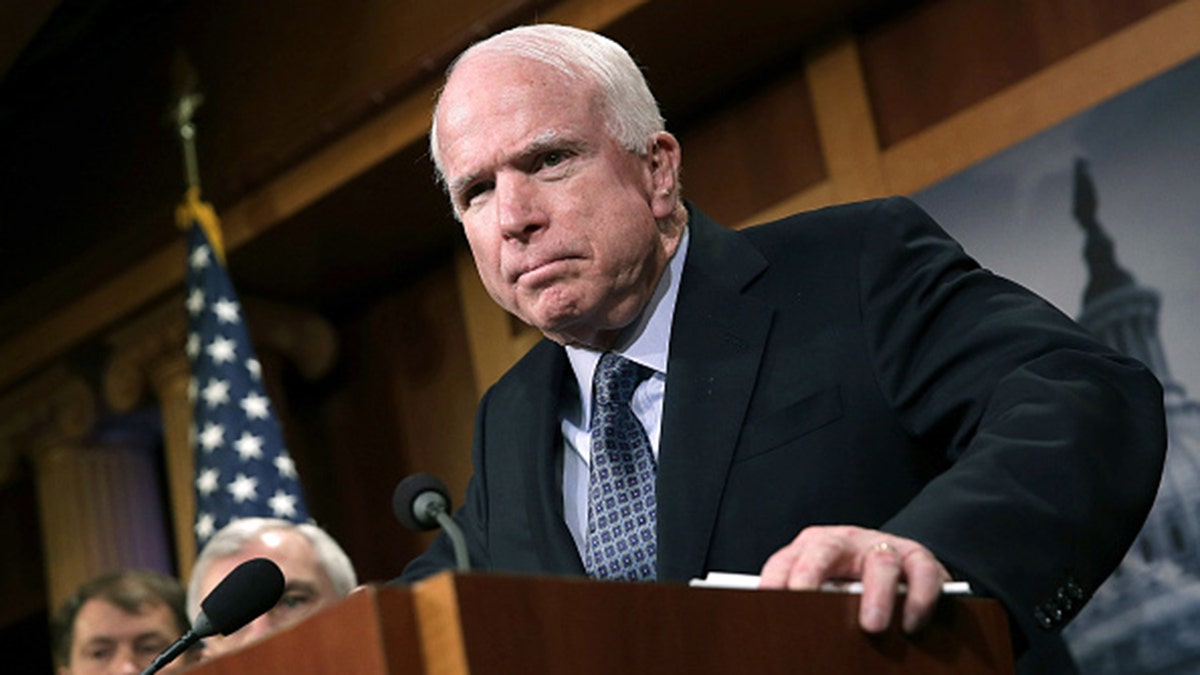
The late U.S. Sen. John McCain, R-Ariz., once declared Vladimir Putin a "thug and a murderer and a killer and a KGB agent." (Getty Images)
Incursions into disputed territory
The incursion into Ukraine is not Putin’s first move into disputed territory, with a number of aggressive incidents in the last two years -- even as those moves threaten European stability and that Putin himself appeared to explain his motivation for some years ago.
"At the 2007 Munich Security Conference, Putin asserted that he did not support NATO enlargement and that Western values are not their values," Ambassador Paula Dobriansky, a former Under Secretary of State for Global Affairs and now a senior fellow at Harvard University’s Belfer Center for Science and International Affairs, told Fox News Digital. "He also stated that he would come to the defense of Russians living anywhere, whose rights were in jeopardy."
A year later, in 2008, Russia invaded Georgia on a similar pretext to this week’s incursion -- support of separatist governments in a territory beyond its own borders. International condemnations did not appear to shift Putin’s thinking on the matter and Russia suffered few international consequences as a result. A cease-fire was ultimately negotiated that was widely seen as benefiting Moscow.
ARE RUSSIANS ON BOARD WITH PUTIN?
Then in 2014, Putin seized the Crimean Peninsula from Ukraine after the country’s pro-Russian government was toppled by mass protests and replaced by a more pro-E.U. administration. Putin and the Russian government had long made claims that the peninsula was rightfully Russian, and moved in to secure the area. A disputed independence referendum soon followed.
The latter invasion was widely seen as the nail in the coffin for the "Russian reset" -- a policy by the Obama administration to reset hostile relations with Moscow, and that famously saw then-Secretary of State Hillary Clinton present Russian Foreign Minister Sergey Lavrov with a plastic red button. Outside of Europe, Putin’s Russia would later go on to put boots on the ground in Syria to preserve its access and interests there as well.
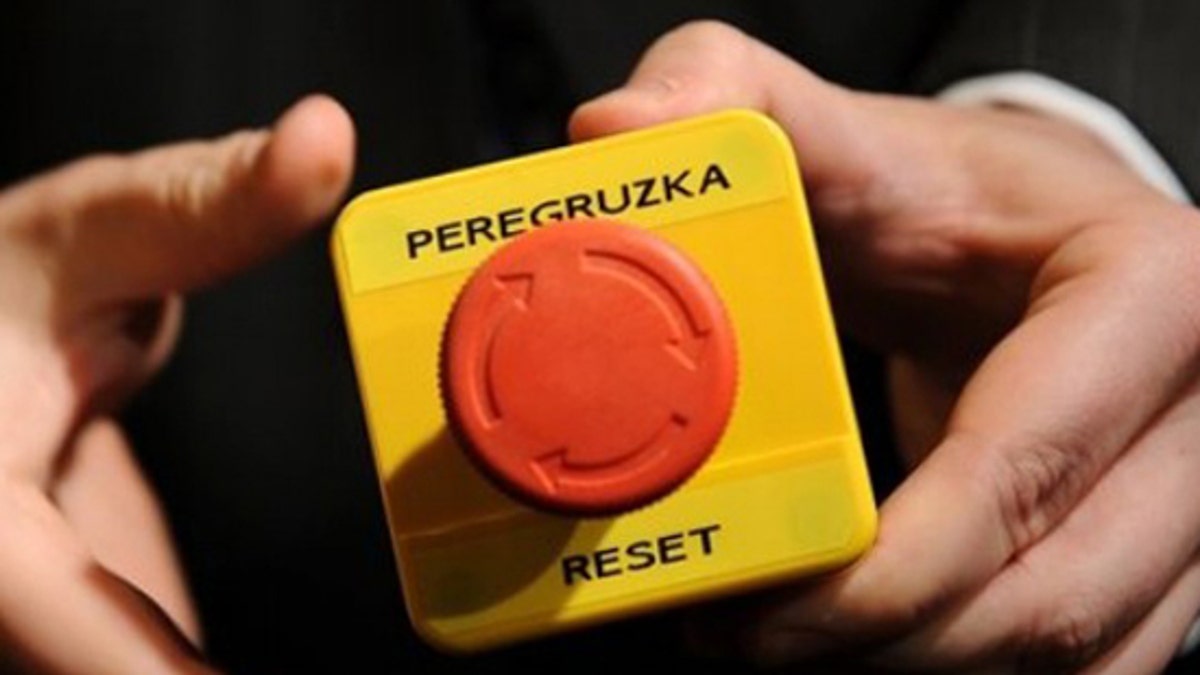
The mock 'reset' button then-Secretary of State Hillary Clinton handed to Russian Foreign Minister Sergei Lavrov during a 2009 meeting. (Associated Press)
Dobriansky said that the move into Eastern Ukraine this week is part of that broader aggression, and noted that it violates international agreements including the 1994 Budapest Memorandum – which included provisions that Ukraine would surrender its nuclear weapons, but would also guarantee Ukraine's territorial integrity.
"Putin's recognition of Donetsk and Luhansk as independent states is a clear act of aggression and violates the sanctity of various international laws, including the Helsinki treaty and the Budapest Memorandum. Putin's goal has been to challenge and diminish American power and influence worldwide and to fragment our alliances and partnerships."
Silencing dissent at home
While citizens in Western countries largely take freedom of speech and open criticism of their government leaders for granted, in Putin’s Russia that is not the case.
Putin’s regime has a long history of suppressing protests and keeping restrictions on journalistic freedom -- particularly those who oppose the Russian government. NBC News reported in October that Moscow has been cranking up its repression by using laws passed in 2012 to regulate the activities of foreign agents.
Meanwhile, opposition leader Alexei Navalny was jailed last year and is currently on trial for fraud -- after he returned to Russia after months of treatment for a near-fatal poison attack that he has blamed on Moscow. Putin’s government subsequently banned any political organization linked to Navalny by branding them "extremist."
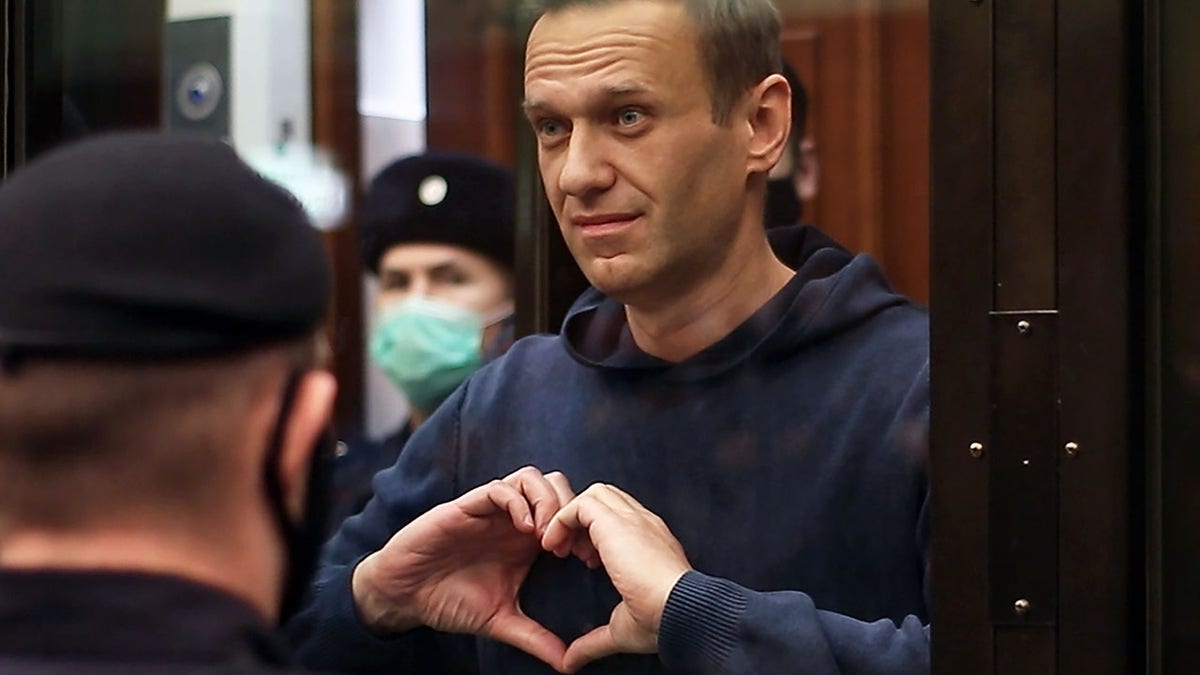
Russian opposition activist Alexei Navalny is seen in Moscow, Feb. 2, 2021. (Getty Images)
Anti-regime protests have for years been met by extreme force by Russian police, with arrest powers used broadly. One prominent case was the response to the "Pussy Riot" protests in 2013, which humanitarian groups noted were followed by the imprisonment of the Pussy Riot band members, and laws that brought hefty fines for public protests.
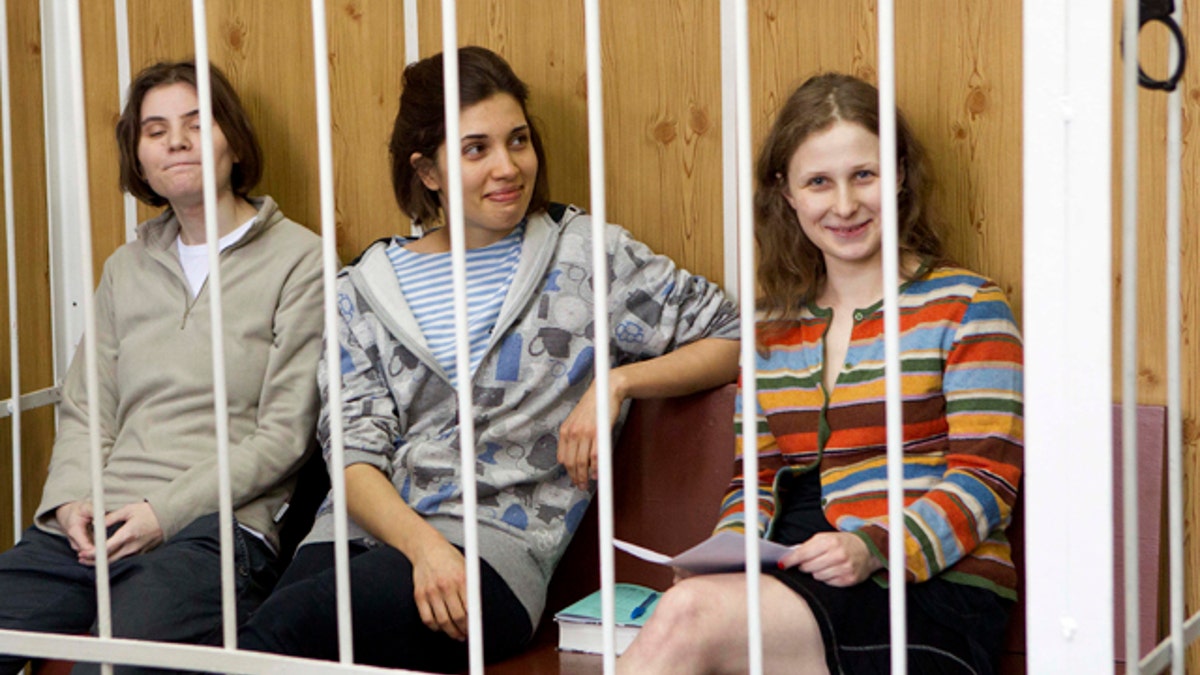
Members of feminist punk group Pussy Riot sit behind bars at a courtroom in Moscow, July 20, 2012. From left are Yekaterina Samutsevich, Nadezhda Tolokonnikova and Maria Alekhina.
Attacks on opponents abroad
Putin’s suppression of opposition has not just been limited to those within Russia. In addition to Navalny’s claim that his poisoning abroad was due to Moscow’s command, there have been other incidents of dissidents being attacked even when outside of Russia.
In 2006, Alexander Litvinenko, an ex-Russian intelligence officer who defected, was poisoned in London. He died weeks later after drinking tea laced with polonium-210. Authorities blamed the poisoning on Russian intelligence agents acting on order from the Kremlin.
In 2018, the Russian government poisoned Sergei Skripal, a former Russian military officer and double agent who had been jailed by Russia but released as part of a spy swap, and his daughter Yulia in Salisbury, England. While both targets survived, a British woman who encountered the poison after it had been disposed subsequently died. While the Kremlin denied responsibility, the incident provoked a diplomatic crisis in Europe.
Interference in other countries' elections
U.S. intelligence organizations have accused Putin of meddling in U.S. election, specifically the 2016 and 2020 presidential elections, aiming to hurt the Democrats running in both those races and to aid former President Donald Trump.
"We assess with high confidence that Russian President Vladimir Putin ordered an influence campaign in 2016 aimed at the US presidential election, the consistent goals of which were to undermine public faith in the US democratic process, denigrate Secretary Clinton, and harm her electability and potential presidency. We further assess Putin and the Russian Government developed a clear preference for President-elect Trump," a declassified intelligence report said in 2017.
CLICK HERE TO GET THE FOX NEWS APP
While the extent and impact of that interference have been debated and downplayed by some, including Trump, officials accused Putin of efforts including spreading disinformation on social media and efforts to influence people close to Trump, as well as cyber operations against both the Republican and Democratic parties and the release of hacked data to the public.
In Europe too, top officials have accused Russia of using its influence to sway elections across the continent using a variety of strategies, including denigrating politicians and spreading misinformation to voters.






